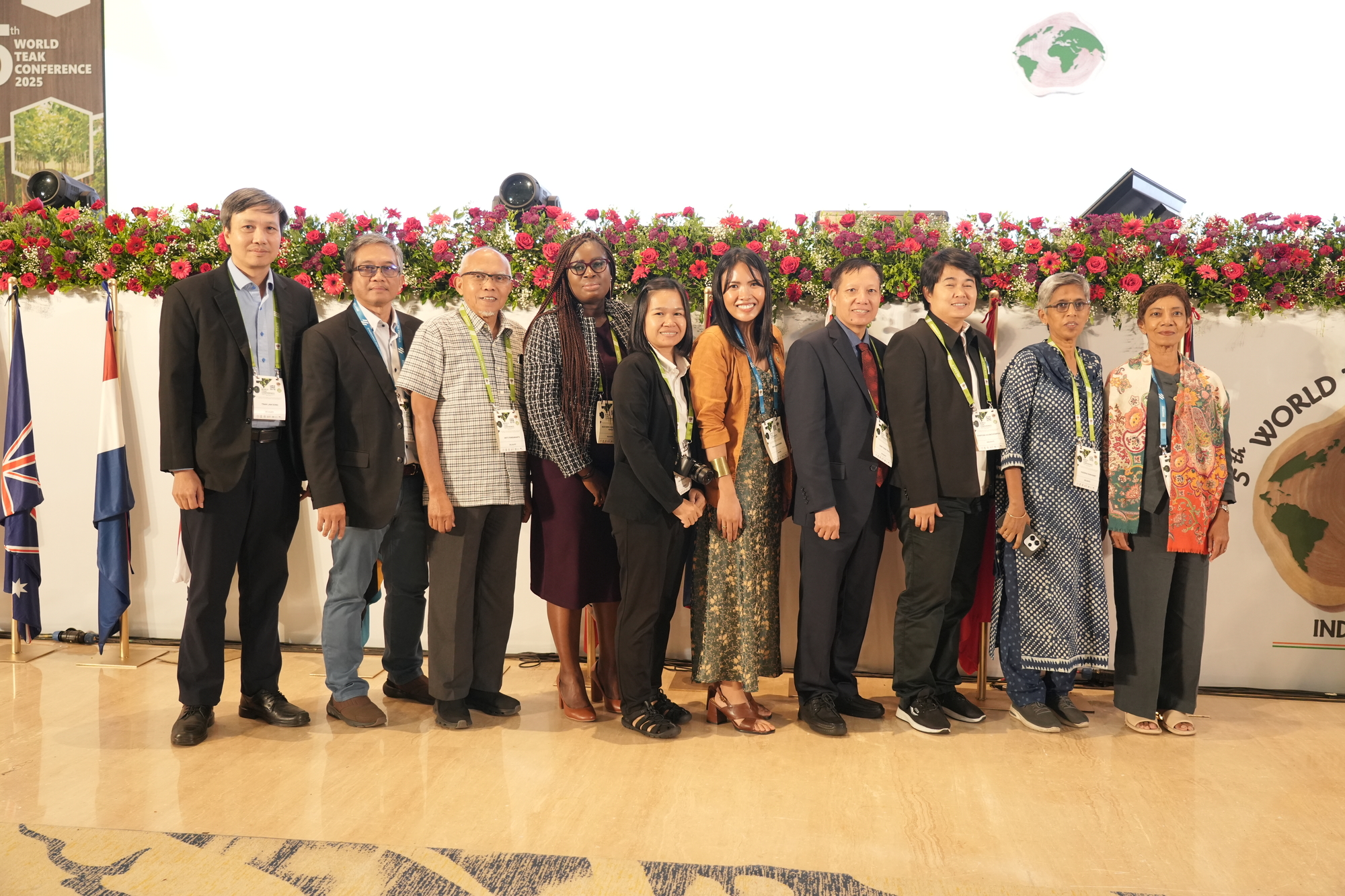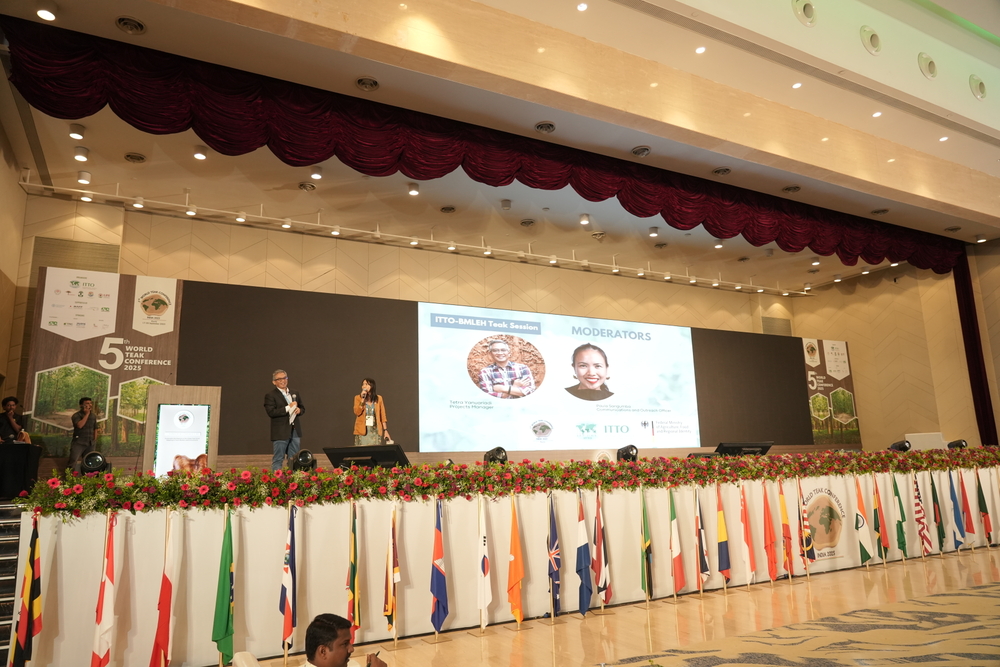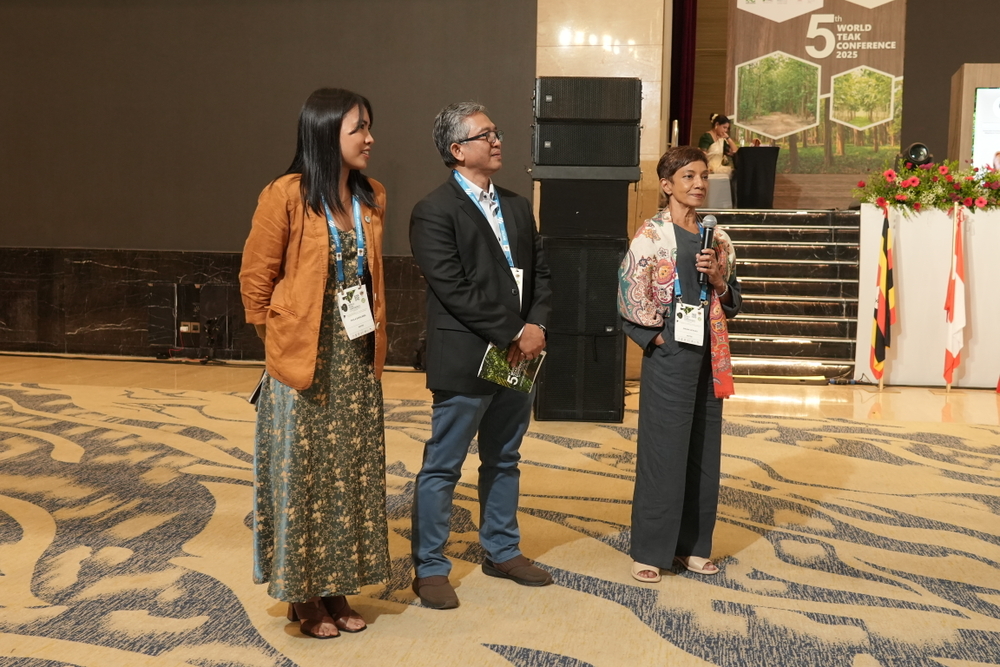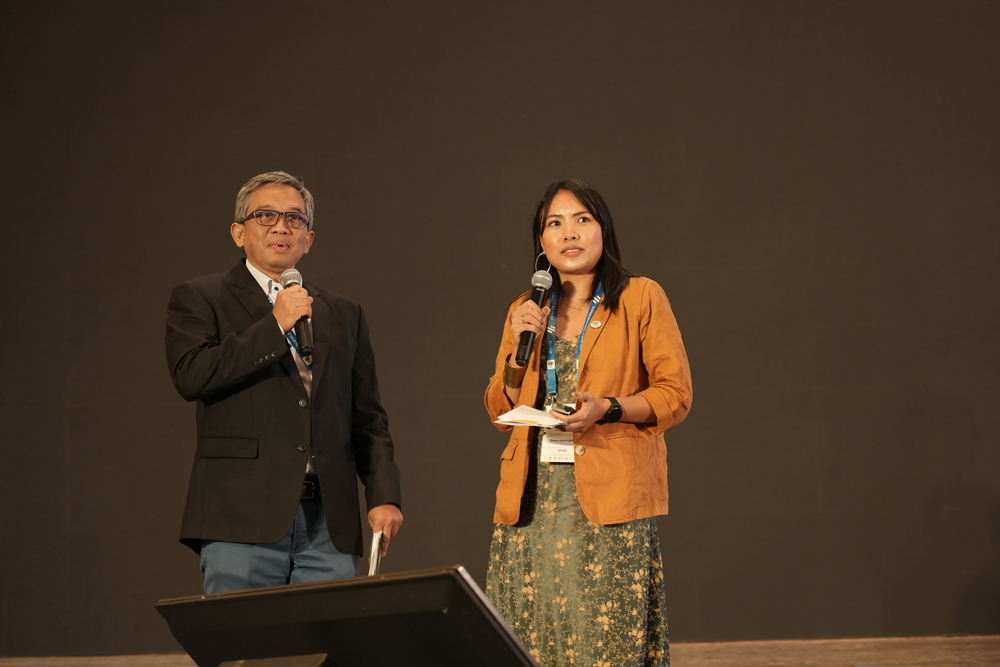5th World Teak Conference: Experts highlight how ITTO project is advancing sustainable teak production
24 September 2025, Kochi

Some of the moderators and presenters pose for a group photograph following the ITTO-BMLEH side event held on 17 September 2025 at the 5th World Teak Conference. © Kerala Forest Research Institute
Experts gathered at the 5th World Teak Conference have explored how a flagship ITTO project is advancing the sustainable production of teak across the tropics through innovations ranging from genetic improvement to financing for smallholders.
The ITTO teak project was the focus of a session on the first day of the conference, which took place 17–20 September 2025 in Kochi, India. Co-organized by ITTO, the conference is hosted by the Kerala Forest Research Institute and coordinated by the International Teak Information Network (TEAKNET) India.
Titled “Promoting Quality Timber Production in Smallholder and Community-based Teak and Other Valuable Species Plantations in the Tropics” and supported by the Government of Germany, the project has been under implementation since 2023 in Cambodia, India, Indonesia, Thailand, Togo and Viet Nam.
The first phase of the project 2019–2022 provided support for the conservation and sustainable management of teak forests and the establishment of legal and sustainable wood supply chains in the Greater Mekong sub-region.
Opening the conference session, ITTO’s Executive Director Sheam Satkuru said supporting the production of high-quality teak was central to ITTO’s mission to encourage sustainable forest management and promote legal and sustainable tropical timber supply chains.

Teak, one of the world’s most valuable hardwoods, is now planted for large-scale cultivation in more than 80 countries in Africa, the Asia-Pacific, and Latin America. However, smallholders and community-based plantations still face challenges that ITTO and its partners are seeking to address.
“ITTO is making efforts to fill the gaps and create the capacity necessary to surmount these concerns,” Ms Satkuru said.
Continuing the session, ITTO Regional Project Coordinator Yongyut Trisurat gave an overview of achievements already made by the project and next steps in its implementation, including improved availability of high-quality planting stock and better practices in silviculture and timber processing.
Experts then presented case studies and recommendations from each of the countries participating in the project while addressing overarching issues, before taking questions from the audience.
ITTO consultant Anto Rimbawanto described how smallholder teak plantations in Indonesia has spread from Java to other parts of the country and now account for about 40% of national production. Recommendations to further strengthen the sector include providing more smallholders with legal ownership, establishing a national teak seedling programme and strengthening support for certification.

Cheat Vichit, also an ITTO consultant, presented the development of teak plantations in Cambodia, including the performance of the species in demonstration plots in Kampong Speu and Kampong Cham provinces. Promising future avenues include promoting public-private investment and research in areas including genetics.
Detailing developments in India, R. Yashoda, Chief Scientist at ICFRE-Institute of Forest Genetics and Tree Breeding, said selected and cloned planting materials that could be harvested after just 20–25 years offered smallholders a way to maximise the economic returns from plantations more typically operated on much longer rotations.
Dang Thinh Trieu of the Vietnamese Academy of Forest Science identified four key avenues along which Viet Nam has promoted high-value teak timber and sustainable supply chains: improving teak genetics; enhancing silvicultural techniques, training in silvicultural practices; and disseminating knowledge via radio, newspapers, and television.
Somporn Khumchompoo, Senior Scientist at Thailand’s Royal Forest Department, presented on the use of clonal testing to select mother trees for the propagation of commercial planting stock. The top performers among the first series, which dates from 2000, are to be planted in 2025 with support from the ITTO project.
Next, Adzo Dzifa Kokutse of the Laboratory of Forest Research, University of Lomé, described research to evaluate the performance of new teak provenances at the Zogbépimé Forest Station in Togo, where plantations have faced low productivity and poor wood quality due to limited genetic variability.

Addressing the issue of pest control, Wattanachai Tasen of the Faculty of Forestry, Kasetsart University, presented on the need for intensive and continuous efforts for the precise control and management of teak borer (Xyleutes ceramica Walker) in plantations in Thailand.
In the final presentation, Temesgen Zana Jaffo of the Thünen Institute of Forestry outlined mechanisms to help bridge the financial gap for smallholder growers of teak and other valuable timber species—including tree-collateral loans, forest grower associations, out-grower schemes, and voluntary carbon markets—and an analysis of their performance across the countries involved in the ITTO project.
Ms Satkuru closed the session, highlighting that the teak industry can only advance “if we showcase science, policy, and practical interface”, noting that the milestones of the ITTO-BMLEH project exemplify it and are promising for scaling up further.